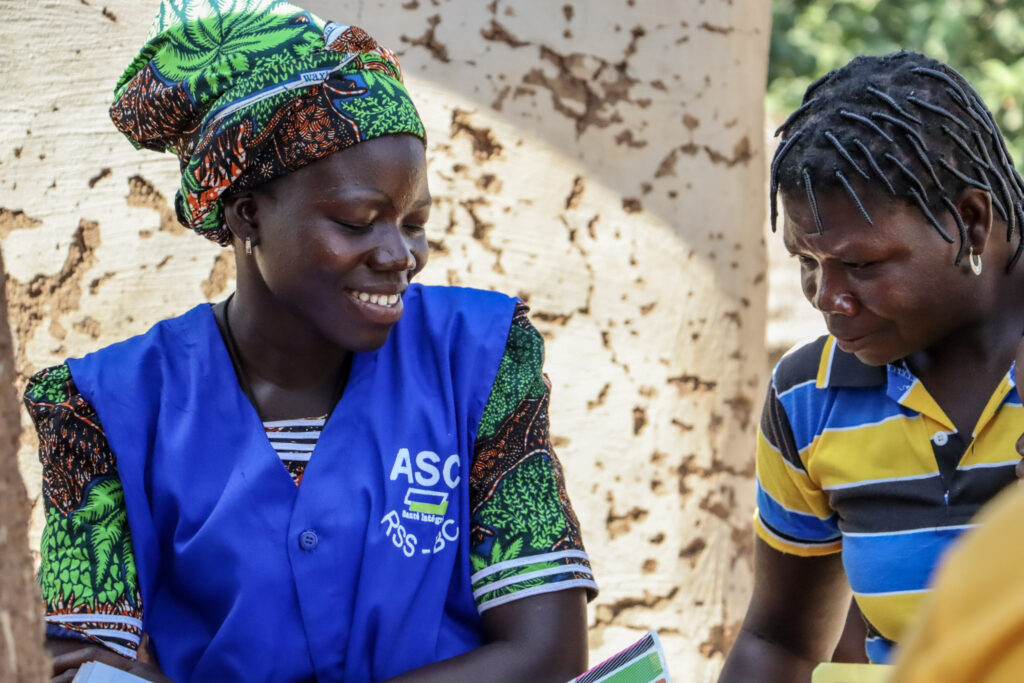A few months ago, I was approached by Integrate Health’s Human Resources Department asking me if I was interested in participating in the “Maximizing Your Leadership Potential Program” in Brussels, Belgium, organized through the Center for Creative Leadership. As Integrate Health’s Research Manager leading a team of three people, I was eager for the opportunity to level up my leadership skills, for the team, my organization, and myself. I applied for the program, was accepted, and even received a scholarship. But then came the critical moment when I applied for a Schengen visa, which, unsurprisingly to me, was denied. I got in a competitive leadership program but couldn’t get to Brussels.
Visa inequities
Sadly, this is not the first time that this has happened to me and to so many others living in the Sub-Saharan region. Back in 2019, I was invited to participate in an event sponsored by The Network: Towards Unity for Health (TUFH) and Flinders University on the theme “Social Accountability: from Evidence to Action.” I was proud to represent my organization, but reality caught up to me quickly. After two successive visa applications and two rejections, another colleague who was a US citizen was sent instead. In 2018, Maina Waruru already spoke about how researchers from the Global South were experiencing issues traveling for work in an article entitled, “African and Asian researchers are hampered by visa problems.” Most recently, Integrate Health’s Deputy Director Anita Kouvahey-Eklu was also unable to attend an event celebrating her achievements due to her visa applications being declined.
Trainings and global convenings organized in North America and Europe remain inaccessible for a large part of the world’s population-a population that not only deserves to be in the room but has so much to bring to the table. I was denied a Schengen visa multiple times because I wasn’t considered a “genuine” traveler. The underlying fear is that I wouldn’t go back to where I’m from and would use the training program as an opportunity to stay indefinitely in Europe. It is very frustrating that European authorities would make such assumptions, assumptions that are harmful to us, as they reinforce the stereotype that all Africans are only interested in pursuing better economic opportunities in Europe. The idea that a young African man like me may be a professional or expert pursuing serious career goals is not even being considered.
Supporting career development amidst inequities
Against this background, Integrate Health is an organization that values its employees and understands that investing in their potential benefits us all. That’s why we are formally implementing a learning culture throughout the organization, allocating funds for employees’ training. Dedicating time and resources to professional development is how we learn, make connections, and share experiences. It is a matter of personal and professional growth and an opportunity we should all equally have access to.
I joined Integrate Health in January 2017 as an intern. At the time, I was at the end of my Master’s degree in Sociology at the University of Lomé and was actively preparing for the defense of my doctoral thesis on the challenges of information and communication technologies in the academic context. I quickly realized that Integrate Health was a place that values human beings and believes in people. Beyond its mission to deliver quality primary care to all, the organization is committed to nurturing the leaders of tomorrow. Everyone, regardless of the color of their skin, ethnicity, religion, sex, identity, or sexual orientation, is valued and empowered to reach their full potential. Recently, one of our Community Health Workers spoke at the international conference on public health in Africa. All this is to say that Integrate Health is a great place to work, not just because it has wonderful and dedicated colleagues and a great work culture, but also because it gives people the space and the means to fulfill their ambitions.
Yet, despite the efforts deployed by Integrate Health to invest in people, power dynamics between high- and low-income countries are still playing a critical role in widening inequities and hampering equal access to opportunities. This maintains the domination of the Global North in research, science, and other economic activities. As a result, people from higher income countries are the ones setting the global agenda for research and funding. This is a zero-sum game. The international scientific community misses out on a wealth of knowledge and contributions while many of us are denied access to opportunities that could serve our communities and our countries.
Not all is lost

These setbacks could have discouraged many, but not me. I’m still happy to be part of an organization that cares so deeply about its employees. Integrate Health understands that to achieve its mission, it needs talent, and talent is something you nurture, you grow. Beyond its fight for the health of mothers and children in Togo and everywhere else, there is another fight that Integrate Health is leading and that is often hidden: human development. The best example of this is the way Integrate Health-supported Community Health Workers–mostly women from rural areas of Togo-have been empowered economically and socially through their positions as healthcare providers.
All this makes me proud to work for Integrate Health despite the challenges that exist and are beyond our control. I am proud to work for an organization that empowers individuals and continues to offer me new development opportunities. I encourage all other organizations to do the same. I’m hopeful that by continuing to push for this agenda, together, we might be able to open this not-so-open international environment and enable the leaders of tomorrow to flourish.
